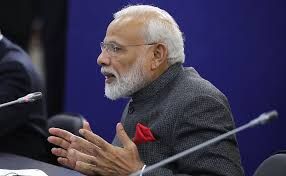Modi unveils plan to tackle water shortages in India's heartland states
Published on by Water Network Research, Official research team of The Water Network in Government
Indian Prime Minister Narendra Modi launched a 60-billion-rupee ($842 million) plan to tackle water shortages in the country’s seven heartland states where agriculture is a mainstay.
 India, the world’s second-most populous country, faces the worst long-term water crisis in its history as demand outstrips supply, threatening farm output and overall economic growth in Asia’s third-largest economy.
India, the world’s second-most populous country, faces the worst long-term water crisis in its history as demand outstrips supply, threatening farm output and overall economic growth in Asia’s third-largest economy.
Almost every sector of the $2.6 trillion economy is dependent on water, especially agriculture, which sustains two-thirds of India’s 1.3 billion people.
“Water shortages in the country not only affect individuals and families; the crisis also has an effect on India’s development,” Modi said. “We need to prepare the new India to deal with every single aspect of the crisis.”
The plan launched by Modi would help replenish ground water and boost overall availability in Rajasthan, Karnataka, Haryana, Punjab, Uttar Pradesh, Madhya Pradesh, Maharashtra and Gujarat states, which produce staples such as rice, wheat, sugar and oilseeds.
India is the world’s leading producer of an array of farm goods, and nearly 60% of the irrigation for agriculture comes from ground water, mainly through electric water pumps.
Media
Taxonomy
- Resource Management
- Water Resource Management
- Water Resources
- Water Resources Management
- Renewable Resources